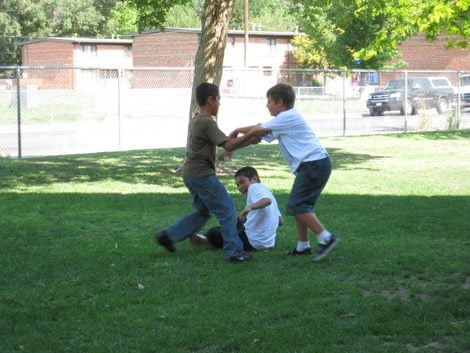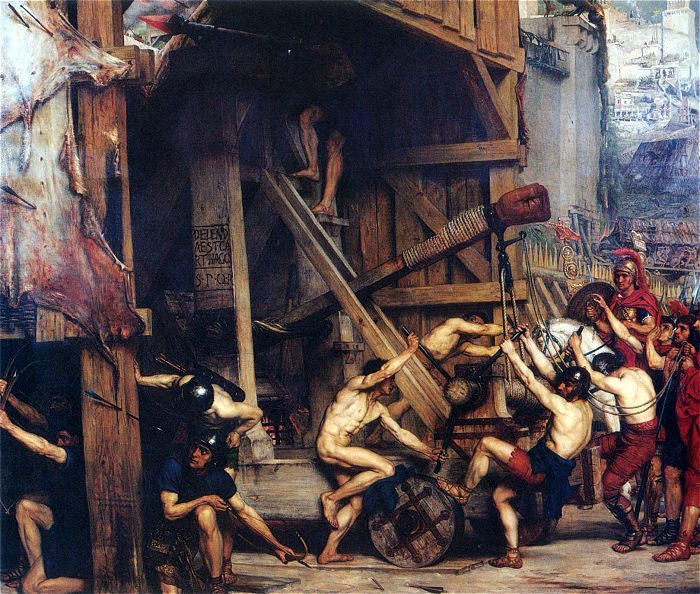Why are so many more dads missing from homes today? What has it cost their children and the nation?
Hearts of the Fathers
Why would God say that He would strike the earth with a curse if the hearts of the fathers would not be turned toward their children? I am referring to Malachi 4:6 which said that “he will turn the hearts of fathers to their children and the hearts of children to their fathers, lest I come and strike the land with a decree of utter destruction.” The word Malachi uses for “turn” is “shuwb,” which means “to return, or turn back,” and in this case, he will cause many to turn back to God. This comes just after God’s thunderous warning, “I will send you Elijah the prophet before the great and awesome day of the Lord comes” (Mal 4:5), so who was this “he?” It was John the Baptist who was “The voice of one crying in the wilderness: ‘Prepare the way of the Lord; make his paths straight” (Matt 3:3). Luke 1:16-17 writes that “he will turn many of the children of Israel to the Lord their God, and he will go before him in the spirit and power of Elijah, to turn the hearts of the fathers to the children, and the disobedient to the wisdom of the just, to make ready for the Lord a people prepared” (Luke 1:16-17). Jesus affirms this in Matthew 11:13-14, where He says of John, “For all the Prophets and the Law prophesied until John, and if you are willing to accept it, he is Elijah who is to come.”
Whose Children are These?
Who were these “children” that Malachi and Luke referred to? Were they the children of Israel? Were these God’s children? Or, does Malachi refer to the children of our day and to the fathers living today? Malachi is not speaking to this generation, although the duality of what he says can apply in any age, and his words seem appropriate for our day, but Malachi was giving a prophecy of who would precede the coming of the Lord. John the Baptist would come in the spirit of Elijah and is believed by many to be the very last of the Old Testament prophets, and even though he came during the New Testament period, he was a prophet that linked the Old Testament to the New Testament. John the Baptist, being in the spirit of Elijah, was turning some of the children of Abraham to the Lord. John preached repentance or a “turning” from their sins and “turning to” God, and many thousands in Judea did. Speaking in the same context, Jesus asked, “But to what shall I compare this generation? It is like children sitting in the marketplaces and calling to their playmates” (Matt 11:16), and “We played the flute for you, and you did not dance; we sang a dirge, and you did not mourn” (Matt 11:17). The fathers of this generation heard the gospel but “did not mourn” their sins and repent and be saved. Only after their rejection of the good news did Jesus began to pronounce “woes” on them. When you read about a woe mentioned in the Bible, it refers to a judgment of God. It’s not that they did not hear Jesus’ words, but they did not believe, and since they did not believe, they did not turn or repent. For a time, John the Baptist had a powerful influence among the Jews, respected even among some of the Jewish leaders, and long after his death, John the Baptist’s disciples were still around (Acts 19:2-7). Only later, these “children’s hearts” (many of John’s disciples) did turn or repent before God. They had heard of Christ but not yet received the Holy Spirit, so why would Malachi decree utter destruction on the land if the father’s hearts were not turned to their children and the children toward their fathers?
Utter Destruction
 The word “turn” is closely related to repentance, which means to turn away from our sins and turn to God, but turning away from sin is not the precise definition. Repentance is “to change one’s mind,” but it is God Who changes the mind or heart (2 Cor 5:17). If God does not changer the heart, that heart will never turn to God because we know that God grants repentance (2 Tim 2:25), but the Bible says true repentance will be visibly displayed by deeds (Matt 3:8; Acts 26:20). As for the curse mentioned by Malachi, God did strike the Jewish nation with a curse, and not only was Jerusalem destroyed during the Siege of Jerusalem, millions of Jews died when the Romans armies swelled in taking Judea. Even though it began earlier, it came to a dramatic conclusion in 70 AD when Jerusalem and much of the surrounding area was destroyed and about 1.1 million (non-combat) Jews die, but the worst thing was the temple was burned, and finally, destroyed. That certainly looks like a curse to me.
The word “turn” is closely related to repentance, which means to turn away from our sins and turn to God, but turning away from sin is not the precise definition. Repentance is “to change one’s mind,” but it is God Who changes the mind or heart (2 Cor 5:17). If God does not changer the heart, that heart will never turn to God because we know that God grants repentance (2 Tim 2:25), but the Bible says true repentance will be visibly displayed by deeds (Matt 3:8; Acts 26:20). As for the curse mentioned by Malachi, God did strike the Jewish nation with a curse, and not only was Jerusalem destroyed during the Siege of Jerusalem, millions of Jews died when the Romans armies swelled in taking Judea. Even though it began earlier, it came to a dramatic conclusion in 70 AD when Jerusalem and much of the surrounding area was destroyed and about 1.1 million (non-combat) Jews die, but the worst thing was the temple was burned, and finally, destroyed. That certainly looks like a curse to me.
Earthly Fathers
What happens when father’s hearts are turned away from their children? Just read these stunning statistics from 2006 from a study done by the Department of Health and Human Services. [1]
A whopping 42% of female-headed households with children were poor, compared with 8% of families with children who had a father in the home.
Girls without fathers in their lives are 2.5 times more likely to get pregnant and over twice as likely to commit suicide.
Boys without fathers in their lives are 63% more likely to run away from home and 37% more likely to use drugs.
Boys and girls without father involvement are twice as likely to drop out of school, twice as likely to go to jail, and nearly four times more likely to need help for emotional or behavioral problems.
Even when fathers are living with the family, the average American father spends a little over seven minutes of uninterrupted time per week with his children, while the family watches TV for nearly 35 hours a week! What happened to the days when we talked to our children or shot hoops or played catch? Sadly, most of the TV programming is tuned into talent shows, reality shows, or worse, violence-filled or sexually explicit or suggestive movies. Even the old American tradition of eating together as a family is disappearing. Today, the average American family has a meal together less than twice a week.
Conclusion
Perhaps the reason that they say history repeats itself is because we don’t learn from it. If fathers spend less than 10 minutes a week engaged in conversation with their children, it seems likely that their children will do the very same thing with their own children; perhaps spending even less time with them. The foundation of any nation starts with the family, but also, “Righteousness exalts a nation, but sin is a reproach to any people” (Prov 14:34). When families break down, nations are weakened, so the best we can do is to “Train up a child in the way he should go; even when he is old he will not depart from it” (Prov 22:6), but “Fathers, do not provoke your children to anger, but bring them up in the discipline and instruction of the Lord” (Eph 6:4).
1. Dr. Jo Jones and Dr. William D. Mosher. “Fathers’ Involvement with their Children: United States, 2006-2010. National Health Statistics Report. https://www.cdc.gov/nchs/data/nhsr/nhsr071.pdf (Accessed June 12, 2018).
Article by Jack Wellman
Jack Wellman is Pastor of the Mulvane Brethren Church in Mulvane Kansas. Jack is a writer at Christian Quotes and also the Senior Writer at What Christians Want To Know whose mission is to equip, encourage, and energize Christians and to address questions about the believer’s daily walk with God and the Bible. You can follow Jack on Google Plus or check out his book Teaching Children the Gospel available on Amazon.











